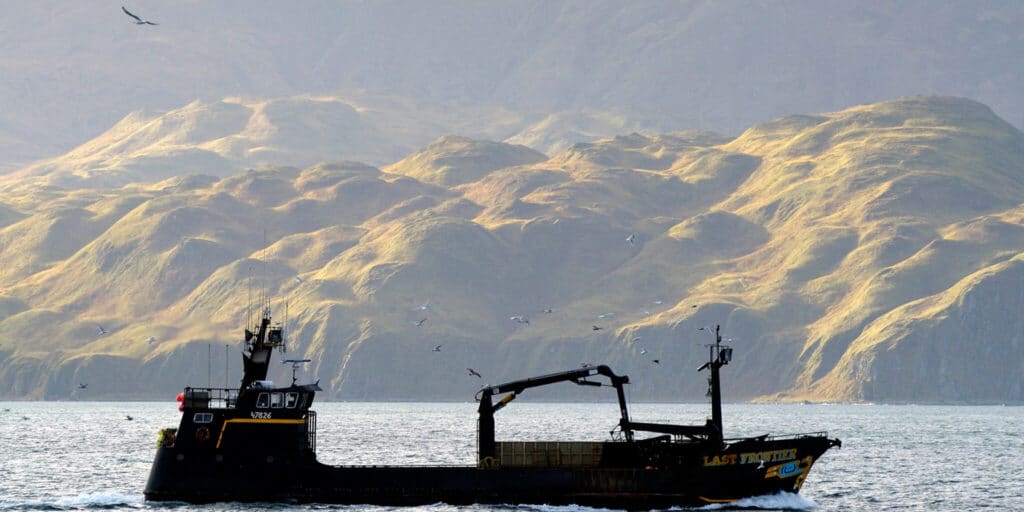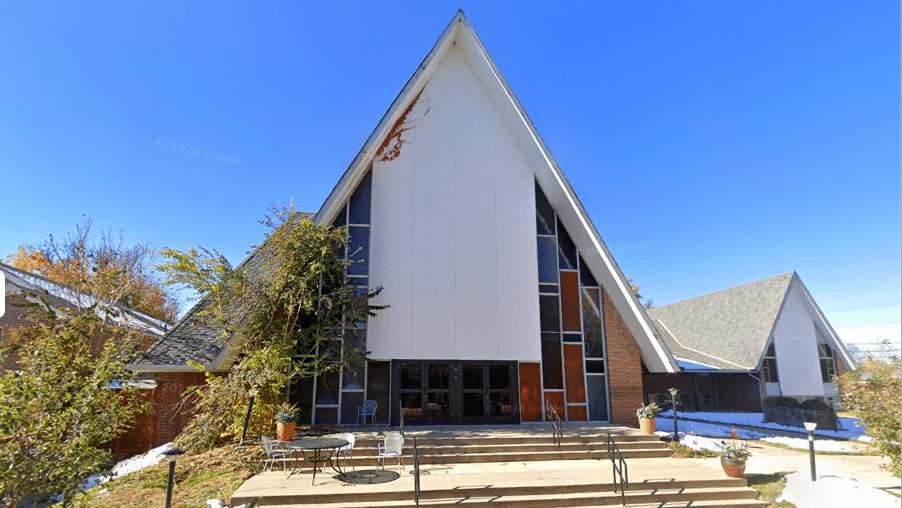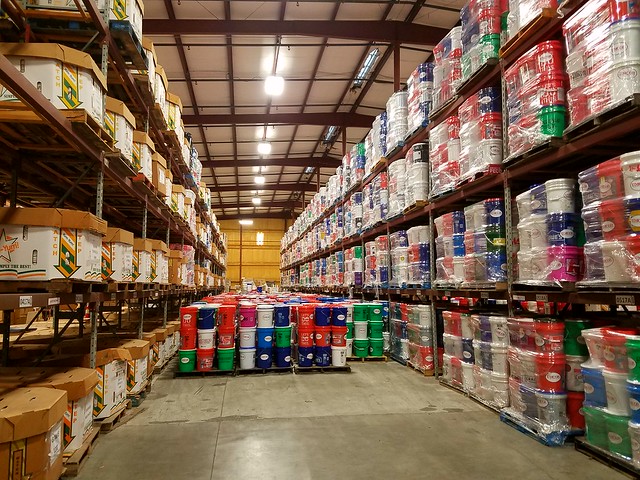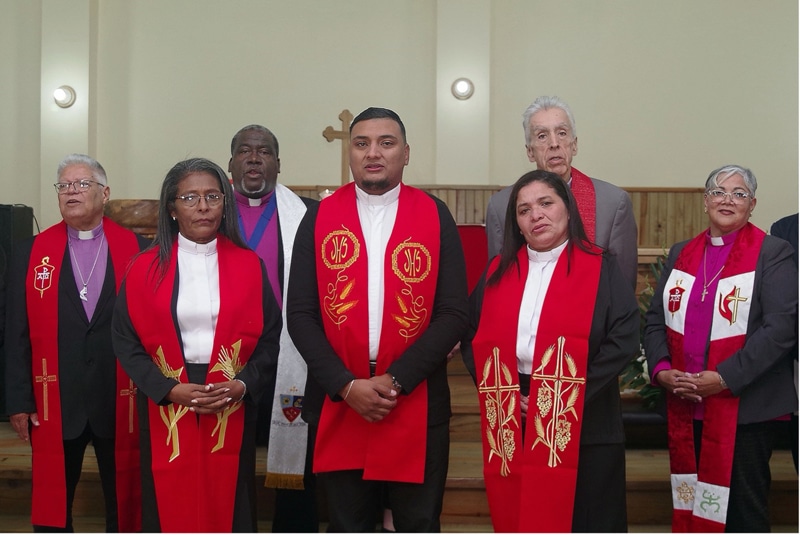UMCOR assists Chignik native villages affected by record-low salmon returns
ATLANTA — Spring is a time of anticipation for people who make their income fishing along Alaska’s Aleutian Islands – that tail of volcanic formations stretching almost to the Siberian mainland across the Bering Strait. Among the many commercial and industrial fishing rigs in the Alaskan waters are also Native American rigs, smaller, but still able to haul enough fish from the waters to last their families and communities over the winter season. Spring means the ice will thaw, the fish will migrate North once again, and the salmon will return home to spawn. Or – will they?
Most years, the indigenous Chignik communities on the Pacific (Southeast) side of the Aleutians catch about 1 million sockeye salmon during the season, which provide ample food and needed income from fish sold at market. In 2017, a very good harvest year, the Alaska Fish and Wildlife commission reported that the Chignik area harvested more than 8 million of the five different species of salmon in the region. Their communities have maintained life and livelihoods by fishing for centuries.
But in 2018, the number of sockeye caught commercially by the Chignik fisheries, their staple and greatest resource, was 128 fish – total – 128 individual fish. Total salmon catch for Chignik fisheries for the year was a little over 1000 fish.

The “blob” wreaks havoc in the waters
A lack of all salmon species in 2018 devastated the communities of Chignik, Chignik Lagoon, Chignik Lake, Perryville and Ivanof Bay. The cause of the failure was likely a climate phenomenon known as “the blob” – a mass of warm sea water that circulated in the Gulf of Alaska and Northern Pacific Ocean a couple years ago, lasting through the spring and summer seasons. The resulting rise in sea temperature affected the salmon hatchling life-cycle, which for some species takes three to five years, and the subsequent salmon harvest in the Bristol Bay region. Other fish species were also severely affected.
On the Bering Sea (Northwest) side of the islands, fisheries experienced a record-breaking salmon catch, which made up some of the deficit in Alaska’s overall fishing industry. Unfortunately, that did nothing for the Pacific-facing villages of the Chignik communities.
UMCOR grant stretches resources to the next season
According to Chignik elders, these communities have never sought or received outside assistance. Despite state acknowledgment of the fisheries failure and the communities’ declaring and seeking acknowledgement for their unfolding economic disaster with the local government specialist, Alaska is currently operating with a two to three-year backlog, releasing funds for aid and infrastructure projects two years later. The Chignik communities needed immediate assistance to survive to the next fishing season. The National Tribal Water Center referred members of the Chignik Intertribal Council (CIC) to the United Methodist Committee on Relief as a trusted source for assistance.
“Because we are an independent humanitarian relief agency, UMCOR has the unique ability to spring into action and respond quickly to emergent needs,” explained Lorrie King, UMCOR’s program director for WASH, food security and livelihoods.
Partnering with the Bristol Bay Native Association, UMCOR funded a food security program to source, transport and deliver food, pantry and household items throughout the winter months and into this summer’s fishing season. These shipments kept the Chignik households food secure. Implicit in the program is also the introduction of a CIC climate mitigation strategy and food resource plan for 2019 and beyond.
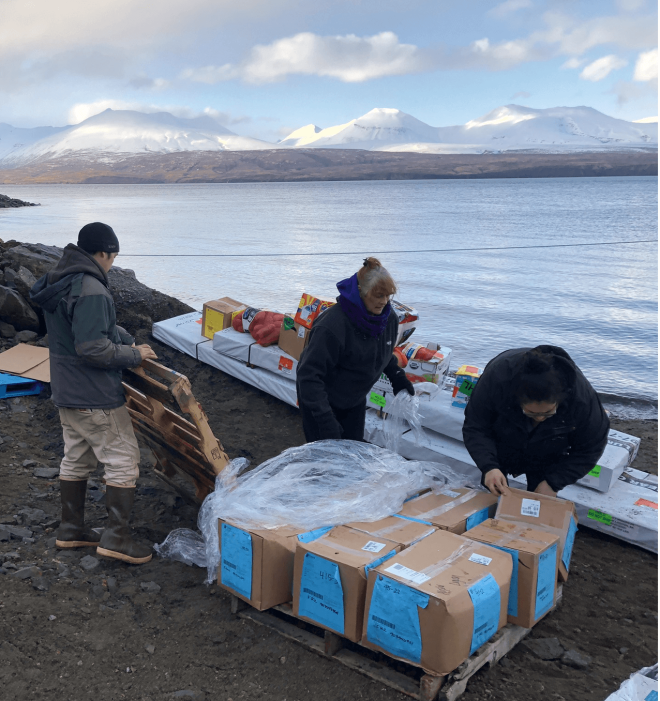
King takes great satisfaction in seeing the project come to fruition, “especially in light of all the government bureaucracy and tribal affairs requirements that had to be navigated,” she said. “Food and household items were shipped from as far away as Lynnwood in Washington state. This has been no small feat of determination, community and logistics.” She credits CIC directors Nancy Mills and George Anderson for their grit and resilience in seeing the project through.
A second UMCOR grant addressed the needs for winter clothing for children and youth in the Perryville community. Long underwear, coats, gloves, hats, long pants and sweaters were beyond reach for many Chignik households. Income that would have paid for these goods disappeared with the salmon that never arrived for harvest.
Thanksgiving for a different kind of harvest
Chignik residents who received shipments of food and other household items have expressed gratitude to CIC in various ways. One thanked UMCOR, Mills and Anderson, the people who delivered it, those who sorted and packed it, a company that donated freezer space, Costco for the shipment, the shipping company that brought it, the owner of a borrowed forklift—and on down the line. So many partners and hands contributed so that Native communities stayed warm and had what they needed to survive the winter. It was a harvest of a different sort – a harvest of goodwill and sacrificial giving. “We received our shipment today and are very grateful. Thanks for all the hard work,” another recipient wrote. United Methodists covenanted to work with Native communities to identify Acts of Reconciliation that all Methodists can share. UMCOR has developed relationships with Native American partners to honor that promise.
Unfortunately, the forecast for the 2019 season is not looking good. Salmon season in the Alaska North Pacific region generally includes two salmon runs of different species, one in the spring and another later in the summer. As Mills explains. “The Chignik fishery is experiencing yet another failed first run, and we are hoping something materializes in the late run.”
The changing climate in Arctic regions have made the ebbs and flows of the natural world difficult to predict. Yet, with hope and the grace of God, new partners and old friends within the community will see the Chignik through another season.
House is the senior writer/editor for Global Ministries.
